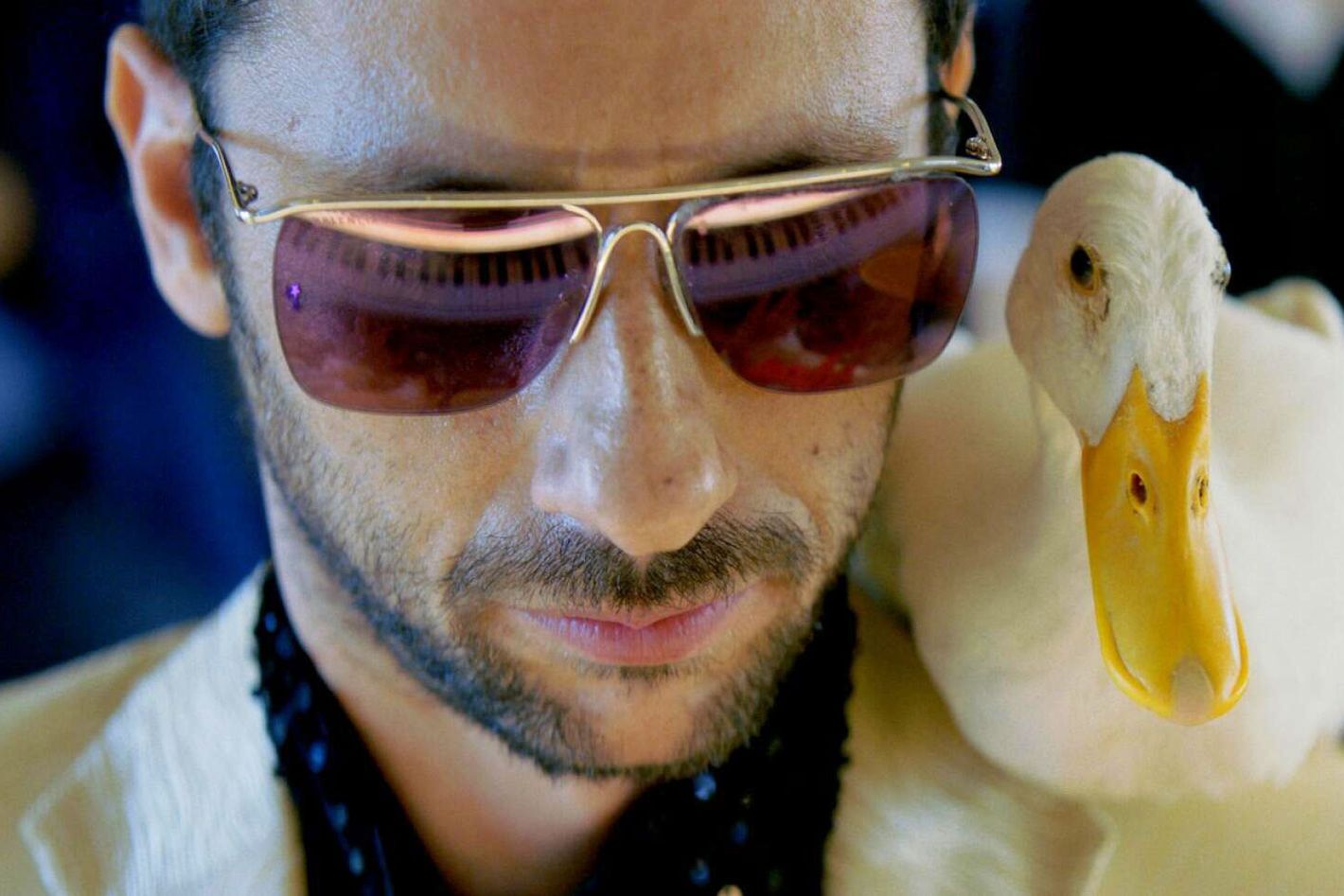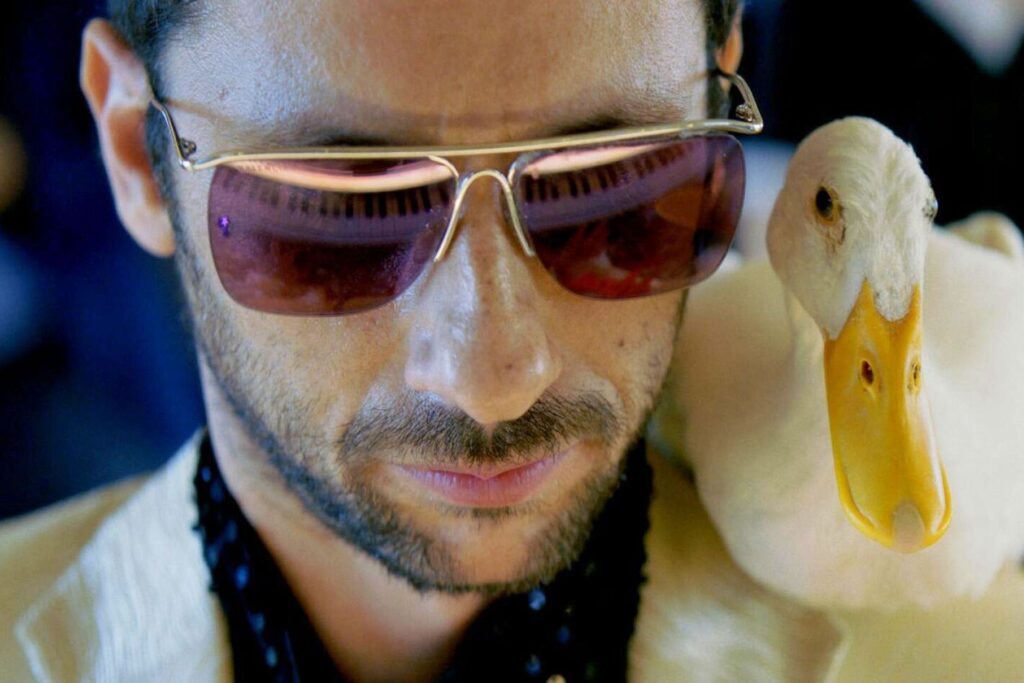
At the Cannes opening ceremony last week, jury president Juliette Binoche spoke passionately about 25-year-old Palestinian photojournalist Fatma Hassona, who in April was killed by an Israeli airstrike in Gaza City alongside ten of her family members. The speech wasn’t just another celebrity attempt to gesture toward suffering going on outside a glitzy event otherwise devoted to formalwear and Champagne. It was a reminder that the brutalizing of Gaza has gone on long enough for the film world, which moves at its own deliberate pace, to respond onscreen. Hassona is the subject of Put Your Soul on Your Hand and Walk, a documentary in the ACID parallel program of this year’s festival about the realities of life in Gaza as told through video calls between her and director Sepideh Farsi. Once Upon a Time in Gaza, a crime dramedy from Palestinian brothers Tarzan and Arab Nasser that’s playing in the Un Certain Regard sidebar, opens with a clip of Trump’s infamous proposal from February to turn the region into the “Riviera of the Middle East.” But there’s no work about the ongoing massacre like Israeli director Nadav Lapid’s Yes!, which premieres in Directors’ Fortnight today. It’s a self-loathing howl of a film about a jazz musician and his dancer wife who’ve been selling themselves in both a metaphorical and literal sense to the Tel Aviv elite to get by.
Yes! becomes an anguished film, though that eventuality isn’t as nauseatingly propulsive as its first chapter, which is such a caustic depiction of cognitive dissonance that it stings to watch. Y (Ariel Bronz) is part performer, part clown, and he and his wife, Jasmine (Efrat Dor), bounce around gatherings of government officials, oligarchs, and the wealthy gerontocracy like sexually available professional party starters. They crawl on the ground like dogs, have their faces shoved in dessert bowls, deliberately lose sing-offs with the head of the IDF, and go home with a jewel-encrusted lady who gets off on being serviced in her ears, all as an apocalyptic form of networking. So long as the music keeps playing, they don’t need to keep thinking, something that extends to their daylight hours at home with their baby, where they turn up a dance track to avoid the silence, the camera jittering frenetically to the beat over their dancing bodies and the city skyline. When news of deaths in Gaza pop up on their phone, the disruptive roar that marks the alert only lasts for as long as it takes the characters to compartmentalize the information and set it aside. “I believe the army,” Y says out loud in sedated tones when reading a statement about how the military tries to minimize civilian deaths.
It’s easier to make movies about defiance, about characters who take action to do the right thing, than it is to make movies about ones who comply, though most of us fall, in different degrees, into the latter camp. Lapid, who feels irrevocably linked to Israel despite no longer living there, and who has never been hesitant about criticizing the country in the press or in his work, said as much in the notes to film. “I always felt close to characters who banged into walls or closed doors,” he wrote. “I am still obsessed by those doors, open or closed, but banging my head against them is over for me. It’s become archaic. The way for me to talk about it today is to show someone who crawls to slip through the open door before it closes.” Y understands the state’s actions as evil, and says his recently deceased mother would be disgusted by “the occupiers’ tears,” and yet he keeps doing what’s easiest, for the sake of supporting his family and his career. “Submission is happiness,” he murmurs to the son not yet old enough to understand him, though the happiness he’s chasing looks more like a numbness. Riding his bike along the beach, Y’s eyes are anime wide as he blisses out to the sunlight through the trees, speaking in voice-over about how they used to wonder how life could continue as normal as atrocities are waged nearby. Now they know.
Lapid started writing the script before the October 7 attack, only to end up braiding the resulting war and the escalating hypernationalism into the story. It’s hard to imagine a U.S. distributor willing to take a chance on Yes!. Despite coming from an Israeli filmmaker, the film is bound to attract more punitive attention than box-office rewards. Yes! is, appropriately, about that, too — about the ways that being an artist means having to prostitute yourself for funding, for opportunities, for patronage, and attention. Binoche, in that opening-ceremony speech, talked about art as an act of resistance and about the responsibility artists have to bear witness for others. Yes! is about the opposite — about how easily art is compromised and enlisted on behalf of those in charge to maintain control. The film may be rife with despair, but its own power is proof that art isn’t entirely futile.
As Cannes takes on the war in Gaza, no other film is as incriminating as Nadav Lapid’s latest.

































































